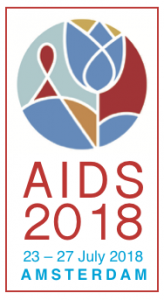HCV incidence and reinfection in HIV negative gay men using PrEP in the Netherlands
24 August 2018. Related: Conference reports, Hepatitis coinfection, World AIDS 22 Amsterdam 2018.
A Dutch PrEP study has reported HCV incidence in HIV-negative men that is comparable to previous reports in HIV positive men and with very high rates of HCV reinfection.
Elske Hoornenborg and colleagues reported 12 incident HCV infections (6 new and 6 reinfections) in a cohort of 374 gay men in the Amsterdam PrEP project from August 2015 to December 2017, with a median follow-up of 1.76 patient years (PY) (IQR: 1.57 to 1.98).
This produced an overall incidence rate (IR) of 1.9 per 100 PY (95%CI: 1.1 to 3.4), with IR 1.0/100 PY for incident infections but 25.5/100 PY (95%CI: 11.5 to 56.8) for HCV reinfection.
Characteristics included median age 35 (IQR: 26 to 41), 10/12 were white and 11/12 were using daily PrEP. Median number of partners in previous 3 months was 19 (IQR: 14 to 34) with receptive sex without condoms reported with a median 8 partners (IQR: 3 to 22). Although 9/12 (95%) reported chemsex (use of crystal meth, mephedrone or GHB), information was not included about whether this included shared injections.
Phylogenetic analyses were compared to HIV positive cohorts and other risk groups in the Netherlands, and showed a high degree of clustering (four large clusters, all HCV 1a) between HIV positive and HIV negative gay men, suggesting a shared transmission network.
The study emphasised the importance of routine HCV testing and prompt HCV treatment
comment
Unlike the UK, the Netherlands health service includes not only access to effective DAA treatment but repeated access if reinfection occurs.
This is the right public health intervention to HCV prevention if HCV is to be eradicated as an STI for gay men. This is especially true given the difficulty in identifying the exact transmission route, still most likely involving blood-to-blood contact.
Reference
Hoornenborg E et al. High incidence of hepatitis C virus (re-)infections among PrEP users in the Netherlands: Implications for prevention, monitoring and treatment. AIDS 2018, 23-27 July 2018, Amsterdam. Poster TUPEB038.
http://programme.aids2018.org/Abstract/Abstract/2682


 Simon Collins, HIV i-Base
Simon Collins, HIV i-Base